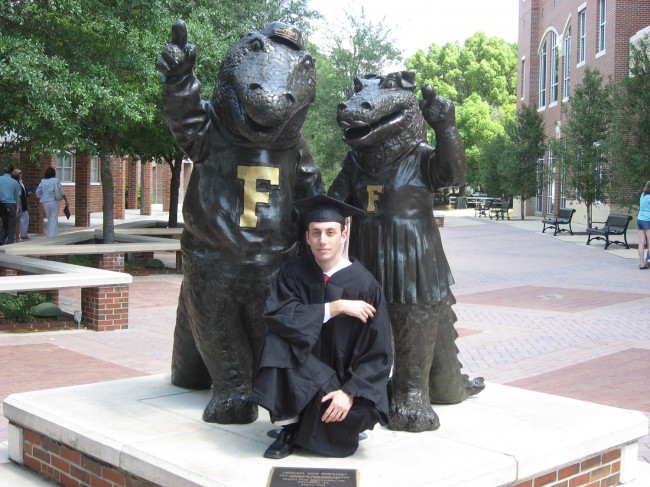
Under pressure from Gov. Rick Scott, a committee of the Florida Board of Governors shot down fee increases backed by students Thursday, the latest phase of a battle over how much degrees should cost in Florida.
The debate during the Budget and Finance Committee meeting was in some ways counterintuitive: The sole student representative on the board repeatedly urged other committee members to approve the two sets of fee increases and ended up being the only member to vote for both proposals.
The most sweeping decision came on a proposal by eight universities to increase the “capital improvement trust fund” fees, or CITF fees, which pay for construction projects approved by university panels that draw at least half their members from the student body.
The increases, which would amount to $2 per credit hour at most of the institutions, were rejected on a 6-2 vote. Board members opposed to the boost cited a variety of reasons, from affordability concerns to the fact that the Legislature did not agree to give the universities bonding authority for the money this year — meaning the funds would have to be saved up for any longer-term projects.
“The question for me to answer, as I vote, is: Am I willing to take money out of students’ pockets today to put in a bank to save for something down the road that may or may not happen?” board member Alan Levine said.
But Carlo Fassi, the student body president at the University of North Florida, said he and other colleagues strongly support the increase and the projects it could fund.
“I truly, and the student body presidents here truly do not believe that a vote against CITF is pro-student,” Fassi said. “Not whatsoever.”
The committee also rejected requests from Florida State University and Florida A&M University to levy fees of 50 cents per credit hour for projects aimed at environmental sustainability and energy conservation.
Board member Norm Tripp said he wasn’t swayed by the argument that some of the fee increases were relatively small, given that the board has approved a number of purportedly small increases in fees over the last several years.
“And we amount it to, well, it’s only a cup of coffee,” he told students backing one of the fees. “But what we’ve got now are gallons and gallons of coffee that you’re paying for every credit hour.”
FSU President Eric Barron said he had pushed back on his students’ first requests for the environmental fees, which have been put in place at other universities, while he focused on getting more funds for academics. But Barron said the campus’ students have voted in three different referendums since 2008 to impose the fees.
“The students have been saying repeatedly, in a democratic process, this is what we want,” he said. “Frankly, this is the way I want my students to act. … In retrospect, I should have gotten it approved when the board approved it for the other schools.”
Fassi made a motion to approve the “green fees,” but it didn’t draw a second.
The votes came on the same day that Scott released a letter that he sent to board members Wednesday applauding them for efforts to move toward performance funding for universities and away from tuition increases.
“While I am incredibly appreciative of the progress we have made, it is equally important that we remain vigilant on increases in fees paid by our students and their families,” Scott wrote. “Their ability to get an education and a great job is our most important charge. I would ask that you consider those students and families first as you prepare to vote on the university fee increase proposals tomorrow.”
At least one board member cited Scott’s letter in the debate over the fee increases. After the debate, Scott tweeted out his support.
“Great to see that all State University System Governors did not increase fees and looked out for Florida Families,” he wrote.
–Brandon Larrabee, News Service of Florida




























Leave a Reply